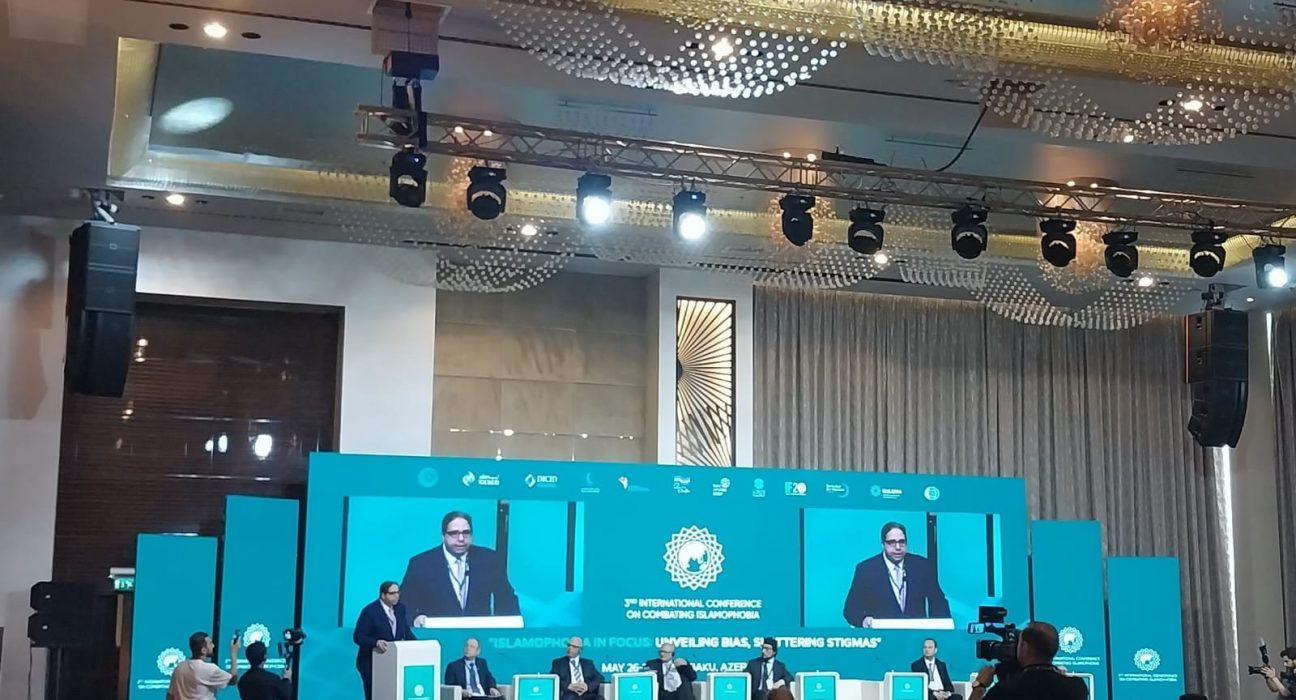The Chairman of the Central Council of Muslims in Germany, Abdassamad El Yazidi, has called on non-Muslims across the world to actively participate in efforts to combat Islamophobia, stating that the responsibility to fight religious hatred and discrimination should not rest solely on Muslims. Speaking at a global conference held in Baku, Azerbaijan, El Yazidi underscored the importance of shared human values in tackling growing anti-Muslim sentiments and violence.
His remarks came during the international gathering titled “Islamophobia in Focus: Unveiling Bias, Shattering Stigmas”, which commenced on May 26, 2025. The two-day event marks the third anniversary of the International Day to Combat Islamophobia and aims to provide a platform for scholarly and policy-driven discussions on Islamophobia’s global and regional manifestations.
According to El Yazidi, one of the most dangerous misconceptions is the tendency to see Islamophobia as a problem exclusive to Muslims in non-Muslim societies. He explained that the phenomenon is far-reaching and embedded in various cultural, social, and political systems across continents. “Islamophobia is not just a Muslim issue—it is a human rights issue,” he stated.
The German Muslim leader lamented the apparent indifference that often follows violent acts targeting Muslims. Referring to a recent disturbing incident in Germany where a Muslim man was brutally stabbed over 50 times while offering prayers in a mosque, El Yazidi criticised the lack of widespread outrage and solidarity. He described the subdued reaction from civil society, religious groups, and the wider public as “deeply troubling” and “morally unacceptable.”
He maintained that combating Islamophobia should be a collective effort involving people of all faiths and backgrounds. “When any group is targeted based on religion, race, or identity, silence enables hatred. We must all speak out—Muslims and non-Muslims alike,” he said firmly.
The Baku conference, organised by the Baku International Multiculturalism Centre, the Centre of Analysis of International Relations, and the Baku Initiative Group, has attracted notable international support. Partner organisations include the G20 Interfaith Forum (IF20), the Organization of Islamic Cooperation (OIC), the Islamic World Educational, Scientific and Cultural Organization (ICESCO), the Doha International Center for Interfaith Dialogue (DICID), the Higher Committee of Human Fraternity (HCF), and other prominent Islamic and interfaith institutions from Europe and beyond.
With participants drawn from around 40 countries, including scholars, diplomats, religious leaders, and representatives of international NGOs, the conference has addressed key issues such as anti-Muslim bias in political systems, discriminatory legislation in Europe, the role of artificial intelligence in spreading Islamophobia on digital platforms, and the preservation of Islamic heritage in a rapidly changing global landscape.
One of the more urgent topics discussed is how institutionalised Islamophobia is becoming embedded in national policies and media narratives. Concerns were raised about how AI algorithms and mainstream media can unconsciously or deliberately reinforce negative stereotypes about Muslims, especially women, who often face double marginalisation due to intersecting biases based on gender and religion.
El Yazidi’s appeal adds to the growing voices around the world demanding not just acknowledgement of Islamophobia as a systemic problem, but a unified, inclusive front to eradicate it. As global tensions rise and hate-driven attacks continue to affect Muslim communities from Europe to Asia, the conference serves as a timely call to action for the international community to move from passive sympathy to proactive solidarity.
